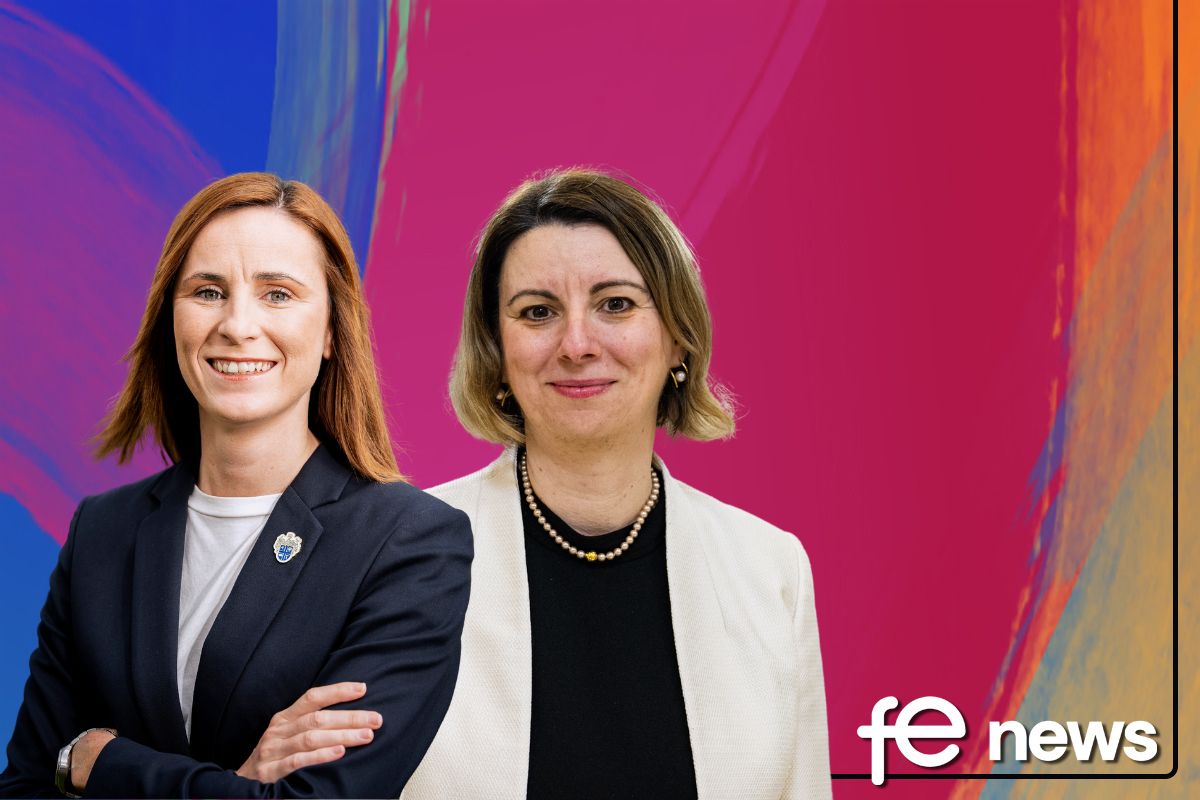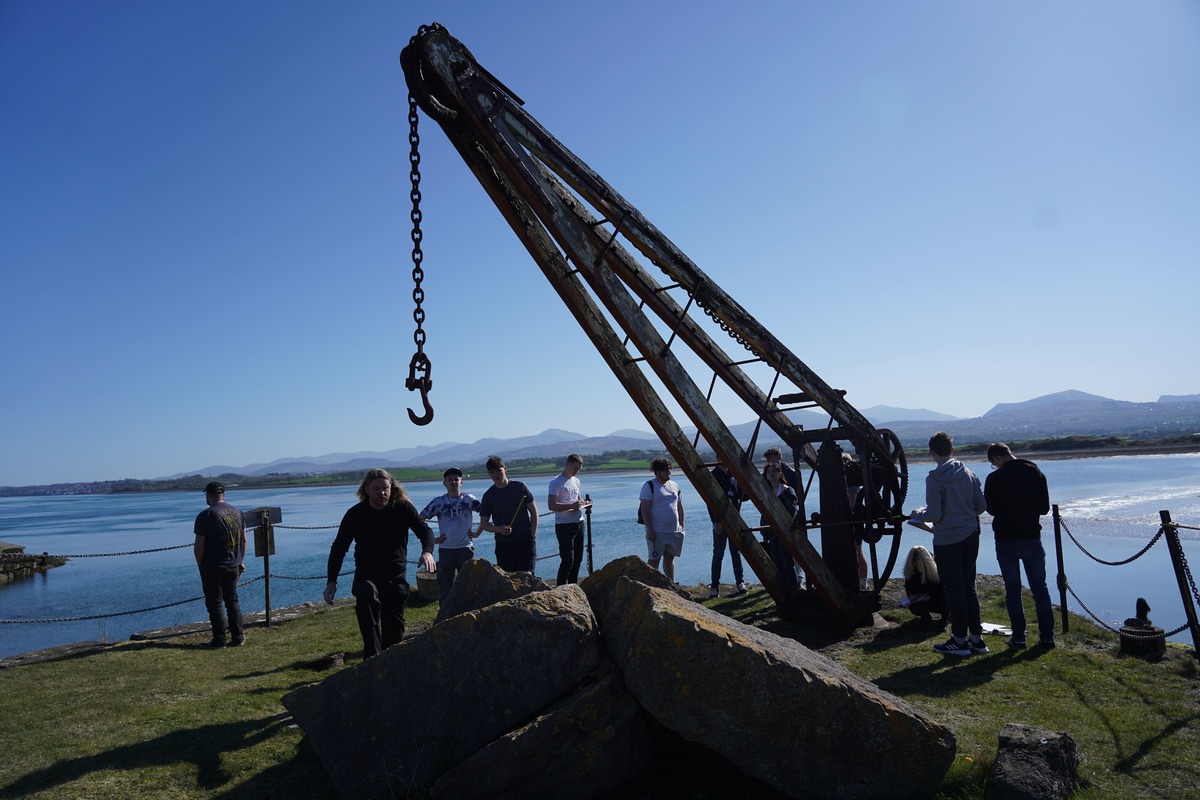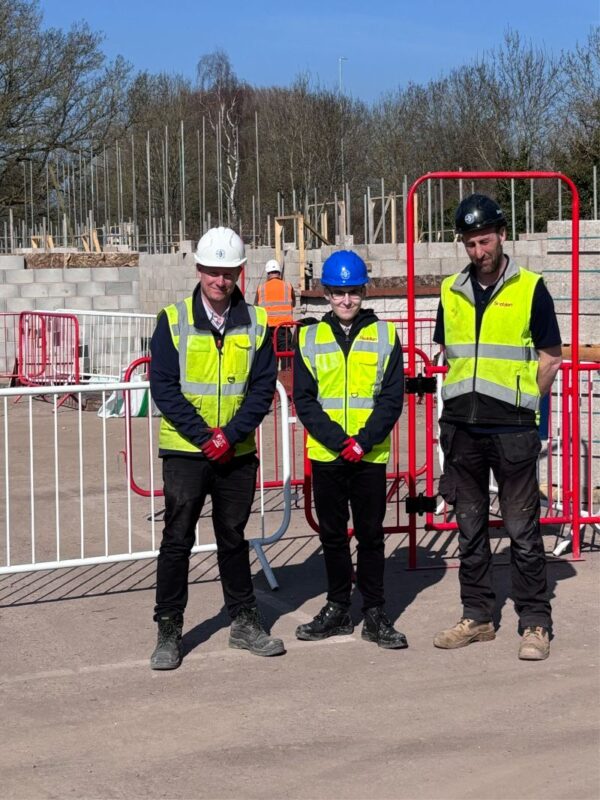Inclusive leadership and culture in the further education and skills sector – in conversation with Dr Katerina Kolyva and Professor Jo Maher

In this first of a series of Inclusive Leadership ‘in conversation’ articles, launching in the first week of Black History Month, Dr Katerina Kolyva, and Professor Jo Maher, discuss the importance of inclusive leadership in the further education and skills sector.
In part one of this inclusive leadership ‘in conversation’ series, launching in the first week of Black History Month, Dr Katerina Kolyva, CEO of the Education and Training Foundation and Professor Jo Maher, Principal and CEO at Loughborough College, and recently appointed as Loughborough University’s Pro Vice Chancellor for Sport, discuss the importance of inclusive leadership in the further education and skills sector. Together they share their reflections on what is needed to truly embed inclusive leadership in our organisations and across the sector.
What does inclusive leadership mean to you?
JM: For me, inclusive leadership is about that sense of everyone feeling welcome.
But it’s not just feeling welcome. One of my colleagues in the Football Association described it as “not about inviting people to the party, it’s making sure that when they get there, there’s the drink that they want and the right food that they need, and that there’s a social circle they can relate to”.
It’s that sense of feeling welcomed and valued equally. From a leadership perspective this means making sure that you’ve got a diverse team. Then it is about asking how you integrate them in decision making, how you ensure team dynamics are appropriate and that you’re actively promoting a sense of belonging.
KK: I agree, it’s about feeling welcome but also active participation. Using the party analogy, it’s one thing to have a welcoming and open door but it’s another thing for everybody to feel comfortable in your lounge. Offer them the drink they want, but also appreciate they may not want a drink at all!
I think the most important thing with inclusive leadership is not to think you will get it right, all the time. There will always be an opportunity to improve your understanding of your audiences, the people you lead, the people that lead alongside you and how you support them. Also recognising that you need to support yourself too – sometimes we feel we know everything and because we are inclusive, everybody else will be inclusive too. It’s about sharing views and knowledge.
How do you approach inclusion and inclusive leadership?
KK: For me there are four strands;
The first one is data – when I join a new sector or a new organisation that I lead I want to know what the data is telling me, what insight can I use to identify areas to focus on and prioritise.
The second one is values – what do the organisational values that tell me about inclusion? Do I see those values embedded and practiced in the behaviours and language used by the people who interact with me internally and externally? What am I’m hearing about external stakeholders, our sector, and our organisation?
The third one is strategy – how do I make sure that our current and future strategy is inclusive. How do we make sure we use the right language and that we make our strategy accessible to the wider public and to those we serve.
Finally, and the most important thing for me is engagement – how do I engage with those I lead internally, the sector I lead and support externally, key stakeholders and partners that I work alongside for the benefit of our learners. If that engagement is not inclusive, then I haven’t done my job.
Something I’m really proud of is my work with the Association of Chief Executives of Voluntary Organisations (ACVO), where I chair their women’s group. I have learned so much from them. It’s great to be part of a community where you can share your own leadership experience, but also be humbled to listen and learn from everybody else’s. I love those kinds of groups where you can ask “what about this?” and you get 100 ideas back!
As leaders how can we ensure that our actions match our intentions?
JM: It’s about authenticity and trust, admitting when you’re wrong and accepting that nobody is perfect. I became a chief executive seven years ago and obviously I didn’t know what I know now. I’m now a very different leader and I’d hope that I’ve developed as a person. Your style and ability to cope changes. As a leader ninety percent of your day is spent making the decisions that nobody else can make. You spend your time dealing with complex problems, things that are difficult to solve, and that’s really challenging, but putting strategies around yourself can help you manage them.
I’ve had to deal with really sensitive issues such as a student death and liaising with parents and families, then when a smaller problem comes along twenty minutes later, your capacity to want to deal with that may be different in that twenty minutes than it would have been three hours earlier. I’ve got no doubt in my mind that I’ve changed and evolved in those seven years, so has my tolerance for those difficult situations. But I don’t think we’re honest enough about leadership development and about giving leaders the chance to fail quickly and safely – we’re just expected to be perfect all the time, and that’s really difficult.
KK: There is an element of alignment that you must have in your mind; are you always aligned with what you’re saying in terms of your behaviour? It’s like a psychological check that I do sometimes with myself. I said this, did I do it? I promised that did I follow it up? There is an element of reflection as well, so I try to keep Friday afternoons free from meetings as far as possible and reflect on the week. What have I done this week? Have I done everything I said I would? What have I learned? I find it useful to keep a note of it in a journal.
Our experience as a leader develops over time but I don’t think you fundamentally change in terms of your values, your principles, what drives you, or where you draw your energy from. For me, it’s also that balance between me as a leader at work and me as a person at home. What do I bring from my work experience and life to my home life? Hopefully I don’t bring all the work problems home with me, but I use a similar approach to arriving at a solution. Do I have a happy, balanced wellbeing in my personal life that helps me build up the level of resilience to do what is quite a complex and challenging job.
I agree with Jo, ninety percent of what we do in our roles as leaders is ‘politics’ – whether that’s talking to a future work partner, a big stakeholder, somebody external that’s very influential or somebody you want to work with collaboratively or maybe somebody you don’t want to work with! In contrast you may have a colleague who puts a little problem to you, and you must deal with that when you’re also dealing with something massive elsewhere.
So it’s about being that adaptable and agile person.
What have you learned about yourself on your journey through leadership?
JM: When I started at Boston College in my first principalship, the previous principal left me a note on the desk. We didn’t have time to do a hand over and the note said, “integrity is doing the right thing when nobody’s looking” and it’s the best handover I’ve ever had. It’s rare and difficult to do that when the consequence of making a decision with integrity is difficult for yourself, or it’s difficult for your board, or it’s difficult for some people in your organisation. But it’s the best thing for your learners in your community. Being able to consistently and persistently act with integrity is important.
KK: I’ve learned that when you are a leader, you work in a dichotomy, so you can be tough and kind, open and confidential, engaging but need downtime to reflect. For me balance is important. It is about listening and making decisions that are right for your organisation that will have the right impact.
Something which I hadn’t appreciated as I was entering my roles as a CEO is that this role is a lonely one and people need to be prepared for this. You have your colleagues and networks around you, but you are sandwiched between your board and your executive, and you always have to maintain that level of leadership. You can be vulnerable at times, and be open about how you’re feeling but it is lonely, and unless you understand that I don’t think you can do this role well.
I think a mistake that companies recruiting a CEO, and sometimes the person applying to be CEO make is expecting the CEO to be the subject matter or technical expert in everything they do. I think this is where we get things wrong sometimes when making these appointments. We fail individuals or individuals fail themselves because they think “I’m an expert in this, I must be the person to lead this organisation, because I know everything there is to know about this subject!”. We’re now seeing the so-called soft skills have become the hard skills – these are the skills you need in these roles – the people skills, inclusion skills, the strategy skills. It’s not just about the technical skills and this is something we’ve been discussing in ETF.
JM: What I’m noticing is the vast number of leadership development opportunities that we now have in further education and across civil service, compared to people I know in other sectors. For example, the ETF courses. When I started seven years ago, I was on a CEO course, but I didn’t have the opportunity ten years before that to do the ETF Preparing for CEO course. People applying to come to Loughborough College in the future are likely to have already done a Preparing for CEO course, and that will already put them ahead of where I was when I started my first principalship. That will make a huge difference for them.
Today in further education, there are many routes to learning the science and the art of becoming a leader. But when I speak to people in other sectors, they comment that they haven’t had access to that support and development. Instead, they have moved into that leadership role by being the subject matter expert that got promoted, for example. I think there’s something special about leadership across further education and skills. It’s something that other sectors could learn more from.
KK: It’s brilliant that the ETF has a part to play in developing the workforce and that we’re seen as the organisation that develops the leaders of the future. In the short time I’ve been at ETF I’ve seen how important that support is. Not just for preparing you to become a CEO, but across all levels of career progression. Leadership shouldn’t be hierarchical, it’s not just about the top person. It’s that attribute, that behaviour that you want to ensure everyone has a bit of.
Who inspires you, who are your inclusive leadership role models?
JM: For me it’s about the students – I look at the people that I serve and if I can’t take my role models from them then I’m not getting it right. Leadership is so dynamic. It’s changed over the years, so if I were to pick a role model from twenty years ago, would they still be relevant today?
The students keep us relevant, they’re the role models because they’re digitally savvy,
they think differently, and they come through a different generational experience. So they’re definitely my role models.
KK: There are several people I have worked with through my career that have been role models and they haven’t always been more senior to me. They might be peers or people I’ve managed. It’s like picking up ingredients along the way; it could be something I’ve picked up from a colleague I was managing ten years ago all the way up to my last boss, for example.
It’s about learning from everyone you interact with throughout your career.
By Dr Katerina Kolyva, Chief Executive, Education and Training Foundation & Professor Jo Maher, Principal and CEO at Loughborough College, and recently appointed as Loughborough University’s Pro Vice Chancellor for Sport
FE News on the go…
Welcome to FE News on the go, the podcast that delivers exclusive articles from the world of further education straight to your ears.
We are experimenting with Artificial Intelligence to make our exclusive articles even more accessible while also automating the process for our team of project managers.
In each episode, our thought leaders and sector influencers will delve into the most pressing issues facing the FE sector, offering their insights and analysis on the latest news, trends, and developments.











Responses